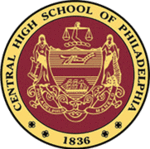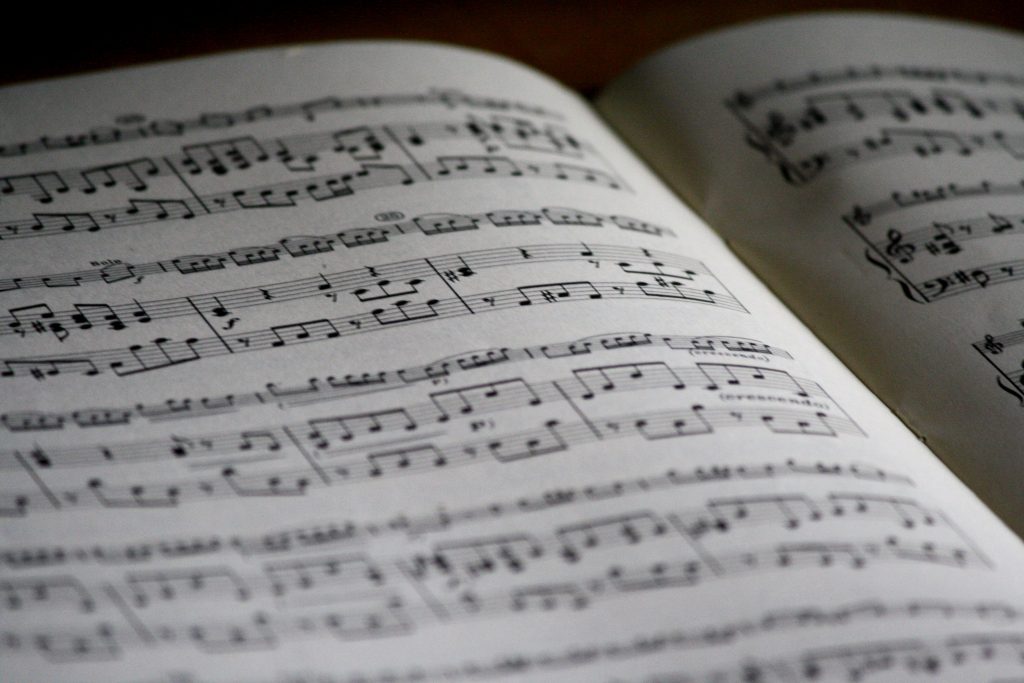Performing Arts
MUSIC
Music Technology I Honors (10th-12th, ½ year course)
Music Technology provides students with a basic knowledge of music theory, notation and piano skills. They will also gain a basic knowledge of acoustics. Students will learn various technological applications in music. The technology lab allows students to engage their creative side. The software programs utilized in the course include Sibelius, Garage Band, Logic, Reason among others. Students will learn basic recording and production skills through a variety of projects. Musical experience is preferred, but not a prerequisite. Please see Mr. Blazer in room 324 for any questions.
Music Technology II Honors (10th-12th, ½ year course)
A continuation of music technology I, this course more deeply investigates technological applications in music. Topics include but are not limited to music theory, musical synthesis, recording, composition, critical listening and music notation. Utilizing a variety of current software, the student will progress through a myriad of engaging projects and assignments.
Prerequisite: Music Technology I.
Music Theory 1: Fundamentals of Musicianship
This course serves as an introduction to the study and development of practical skills in reading, writing, and sight-singing music, musical signs and terms, intervals, triads, major and minor scales, key signatures, meter and rhythm, and harmony. Students will develop the ability to identify musical pitches, both singularly and in combinations through melodic and harmonic dictation as a result of this course. This course does not require any prior musical knowledge or background.
AP Music Theory
This course serves as a component of any college curriculum introducing the first-year student to music theory, a subject that comprises the musical materials and procedures common throughout music history. It emphasizes many aspects of music, such as harmony; more often, however, it integrates aspects of melody, harmony, texture, rhythm, form, musical analysis, elementary composition, and to some extent, history and style. Musicianship skills such as dictation, listening skills, and sight-singing are an important part of the theory course. B or better in this subject group and prerequisite courses fulfilled (ex. precalculus completed to take calculus). Elective capacities will be determined based on student interest, teacher availability and the ability to fill required courses for graduation. Priority will be given based on year-level when filling electives.
IB Music Standard Level and Higher Level
The music component of the IB Program is a two-year curriculum that provides students the opportunity to explore the diversity of music throughout the world. Students take AP Music Theory in the first-year and the IB Music Higher Level 2 in the second-year. Students are encouraged to develop perceptual skills through a breadth of musical experiences. Learning to recognize, speculate, analyze, identify, discriminate and hypothesize in relation to music is a significant component in the curriculum. Opportunities are afforded students to creatively develop their knowledge, abilities, and understanding through various types of performances and/or composition and a musical investigation.
Introduction to Music (9th grade students only)
This class is part of a rotating schedule and limited to one report card period. It includes the study of music, composers, performers and society, focusing on reading and critical listening skills. This course concentrates on the development of western classical music and also includes the artistic variety that developed through the 20th century. A variety of projects and activities make this course an ideal interactive experience.
Piano 1 (10th-12th, ½ year course)
This course is a “hands on” class designed for students who have had little or no prior piano instruction and would like to learn how to play the piano. The course will include familiarization with the keyboard, music reading, basic theory, playing single note melodies as well as melodies accompanied by chords, and the basics of working as an accompanist. By the end of this course, students should be able to play well-known songs. Students’ progress will be measured and graded per student depending upon entering level. Please see Mr. Blazer in room 324 for any questions.
Guitar 1 (10th-12th, ½ year course)
This course is a “hands on” class designed for students who have had little or no prior Guitar instruction and would like to learn how to play the Guitar. The course will include familiarization with the fretboard, music reading, basic theory and playing single note melodies as well as chords. By the end of this course, students should be able to play well-known songs. Students’ progress will be measured and graded per student depending upon entering level. Please see Mr. Blazer in room 324 for any questions.
Performing Ensembles
Instrumental (Includes Orchestra, String Orchestra, Concert Band and Jazz Band)
Audition required. These ensembles rehearse daily from 7:30-8:15 A.M. Candidates must possess advanced instrumental skills and display a level of proficiency commensurate with the major repertoire performed throughout the year. Participants receive one Carnegie unit for each year of successful completion. See Mr. Blazer in room 324 or at bblazer@philasd.org for approval.
Choir
Audition required. Choir offers an opportunity for those students who are vocally inclined to participate in an ensemble. Students will undergo a sequential learning process as they will refine vocal technique their time in the ensemble. The choir performs a variety of literature encompassing musical styles and genres including classical, jazz, world, folk and popular music. Rehearsals take place daily from 7:15-8:00 AM. Participants receive one Carnegie unit for each year of successful completion. See Mr. Blazer in room 324 or at bblazer@philasd.org for approval.
Theater Arts
Theater 1 (10th-12th)
Theater 1 will offer students who are interested in exploring and supporting the Performing Arts at Central High School an introduction to the art of the theater. Students will review theater history and the roles of individuals in the theater: playwright, director, actor, set designer, prop director, lighting director, costume director, and makeup artist. This course will highlight the methods of engaging and researching a role. Students will learn various techniques for relaxation and concentration and character development and see the actor as a physical artist who creates realities within a given space. Students will be introduced to script analysis as the they perform monologue and take roles in short scenes and plays. Students will understand that the art of acting is a conversation between the mind (memorizing text), body (engaging physical space), soul (voice), and audience. The skills learned in this class will be useful even to the non-actor as students develop greater self-confidence. Please see Mr. Burns in room 305 to pick up an application if you wish to select this class.
Theater 2 (11th and 12th)
Theater 2 is designed for the serious student who has an interest in pursuing theater and furthering their skills. Students will come to understand the contributions of Stanislavski and Strasberg and the concept of Method Acting. They will explore and understand other methods of engaging and developing characters by exploring the contributions of, Bertolt Brecht and his Brechtian method and the theories of Jerzy Grotowski and Viola Spolin. Students will work on auditioning skills and should participate in the production of a play during this course. Students will work independently to create self-conceived, self-generated projects, monologs as well as performing with other students in the troupe and know the roles of individuals in the theater: playwright, director, actor, set designer, prop director, lighting director, sound director, costume director, and makeup artist. This course is open to students who have successfully completed Theater 1. See Mr. Burns in room 305 if you have any further concerns or questions.
Theater 3 Honors (11 and 12th)
Theater 3 Honors is designed for the serious student who has an interest in pursuing theater and furthering their skills. Students will come to understand the contributions of Stanislavski and Strasberg and the concept of Method Acting. They will explore and understand other methods of engaging and developing characters by exploring the contributions of, Bertolt Brecht and his Brechtian method and the theories of Jerzy Grotowski and Viola Spolin. Students will work on auditioning skills and should participate in the production of a play during this course. Students will work independently to create self-conceived, self-generated projects, monologs as well as performing with other students in the troupe and know the roles of individuals in the theater: playwright, director, actor, set designer, prop director, lighting director, sound director, costume director, and makeup artist. This course is open to students who have successfully completed Theater 1. See Mr. Burns in room 305 if you have any further concerns or questions. Prerequisites: B or better in Theater 2.

